How Can I Stay Hydrated Without Spiking My Blood Sugar?

Be sure to talk to your medical professional before making any treatment or equipment changes. Hydration Is Essential—but So Is Blood Sugar Control Summer means heat, sweat, and sun—and for people with diabetes, that adds up to one critical priority: hydration. But not all drinks are created equal. From sports drinks to smoothies and iced […]
Can Hot Weather Ruin My Diabetes Supplies? What You Need to Know

Be sure to talk to your medical professional before making any treatment or equipment changes. When Heat Hits Your Diabetes Gear, Accuracy Can Take a Dive It’s no secret that summer heat can wear you down—but what many people with diabetes don’t realize is how damaging high temperatures can be to their medical supplies. From […]
Can I Exercise Safely in the Summer Heat with Diabetes?

Be sure to talk to your medical professional before making any treatment or equipment changes. Yes, You Can Work Out in the Heat—But Plan Smart For people managing diabetes, regular physical activity is one of the best tools for improving blood sugar control, boosting mood, and supporting long-term health. But when the temperature climbs, the […]
What to Look for in a Safety Needle: A Clinician’s Guide
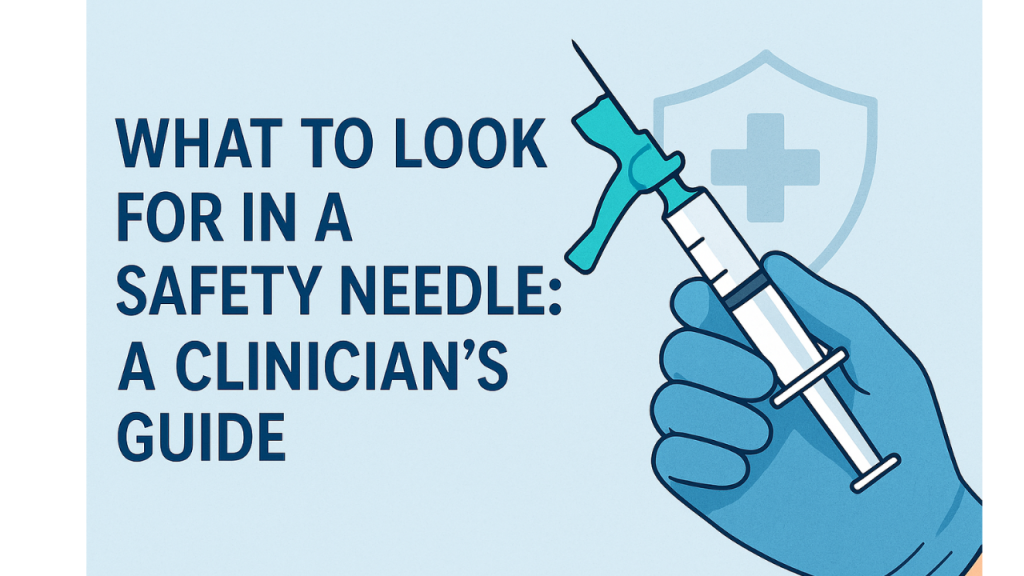
Be sure to talk to your medical professional before making any treatment or equipment changes. For healthcare providers, safety is paramount. Choosing the right needle isn’t just about compatibility; it’s about protecting staff and patients. Here are the top features to consider when selecting a safety needle. Built-In Safety Mechanism Look for needles with retractable […]
Top 5 Mistakes People Make with Diabetes Injection Needles (and How to Avoid Them)
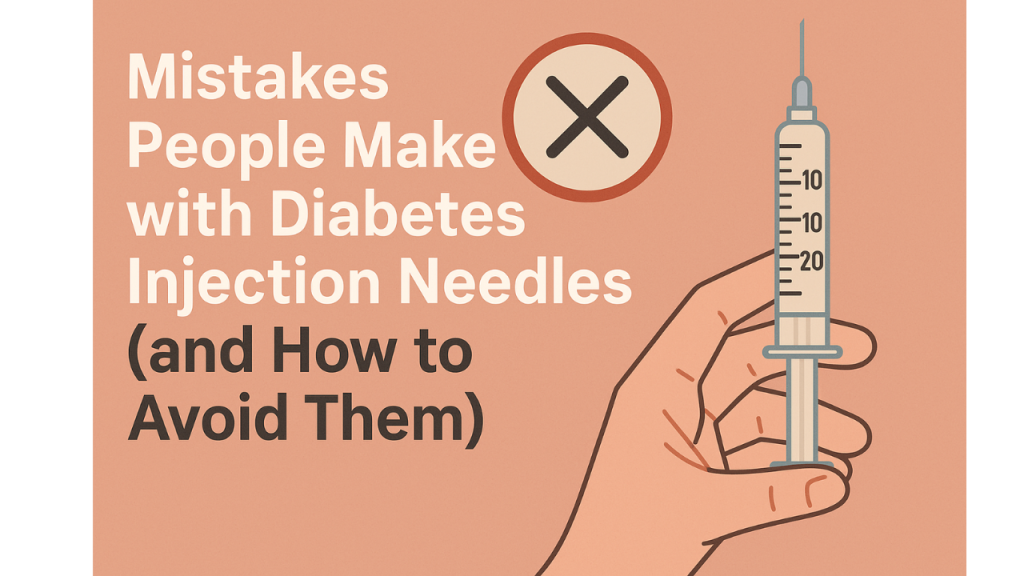
Be sure to talk to your medical professional before making any treatment or equipment changes. Proper use of insulin syringes is essential for effective diabetes management. However, even experienced users can fall into bad habits. Here are five of the most common mistakes and how you can avoid them. Mistake 1: Reusing Syringes. While it […]
The Complete Guide to Insulin Syringes: Types, Sizes, and Safety Tips

Be sure to talk to your medical professional before making any treatment or equipment changes. Managing diabetes requires precision and consistency, especially when it comes to insulin injections. With so many syringe options available, it can be overwhelming to determine which is best for your needs. This guide breaks down the types, sizes, and safety […]
How to Choose the Right Syringe for Your Pet: Tips for Veterinarians and Pet Owners

Be sure to talk to your medical professional before making any treatment or equipment changes. Pets with conditions like diabetes require the same care and precision as humans. Choosing the right syringe is a crucial part of managing a pet’s insulin therapy. Here’s how to make the best decision for your furry patients or companions. […]
Are All Pen Needles the Same? Here’s What You Need to Know
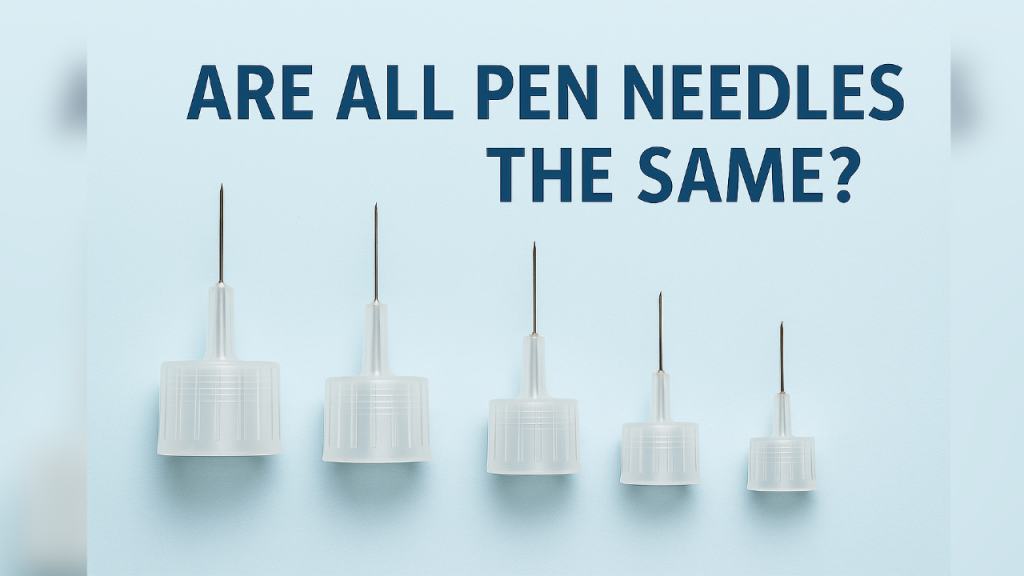
Be sure to talk to your medical professional before making any treatment or equipment changes. If you use an insulin pen, you may wonder whether all pen needles are interchangeable. The answer? Not exactly, but nearly all pen needles and pens are manufactured to an ISO specification to be compatible. Here’s what sets pen needles […]
How Often Should I Monitor My Blood Sugar and What Are the Best Methods?
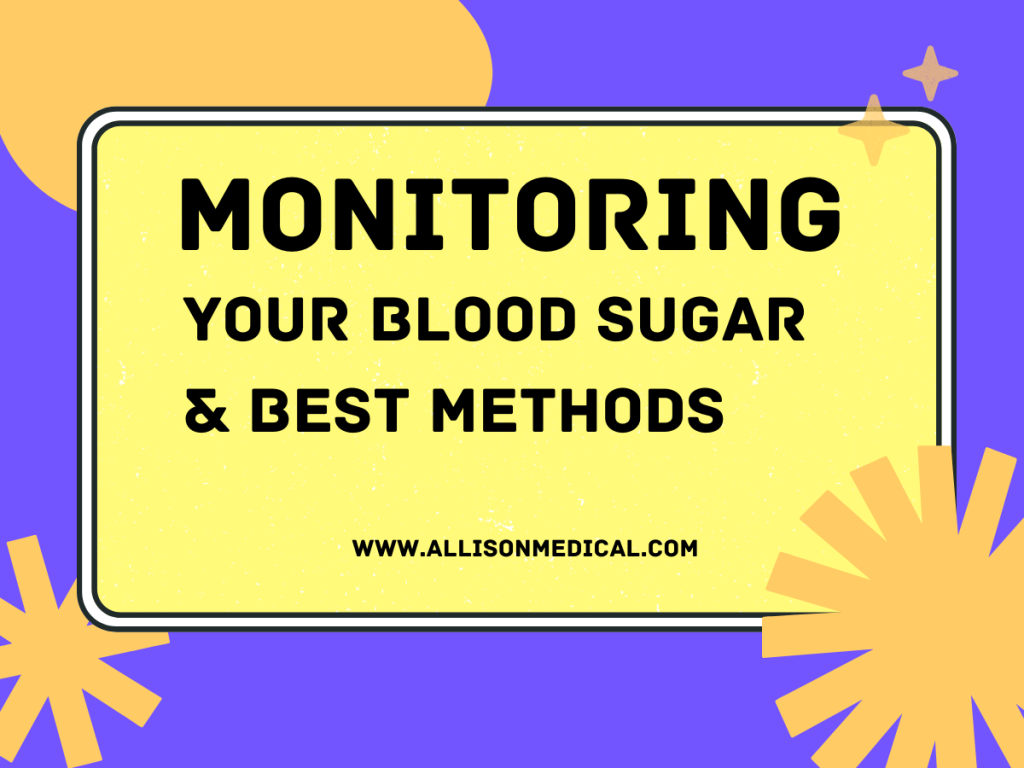
Be sure to talk to your veterinary professional before making any treatment changes. Monitoring blood sugar levels is essential for effective diabetes management. It helps individuals understand how their body responds to food, exercise, and medication while preventing complications. How Often Should You Check Your Blood Sugar? Best Methods for Monitoring Blood Sugar Tips for […]
How Can I Manage Stress and Mental Health with Diabetes?

Be sure to talk to your veterinary professional before making any treatment changes. Managing diabetes is not just about blood sugar—it also involves mental and emotional well-being. Stress, anxiety, and depression can negatively impact glucose control, making it essential to prioritize mental health. Effects of Stress on Blood Sugar Strategies for Managing Stress Taking proactive […]
How Can I Prevent Diabetes-Related Complications?
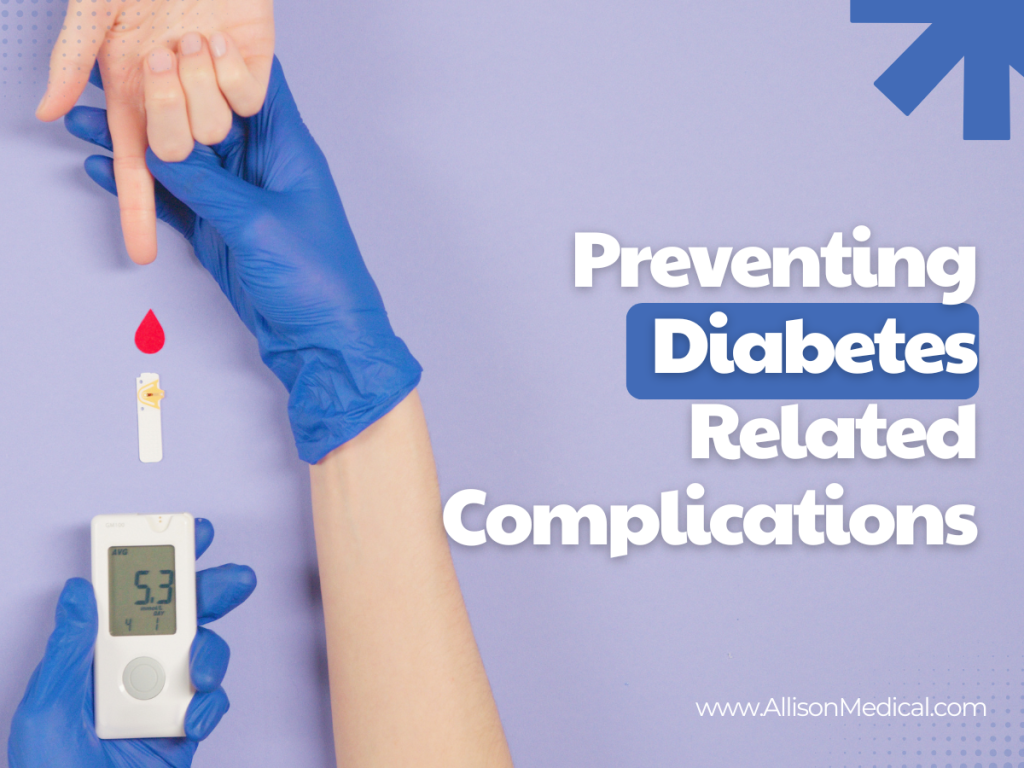
Be sure to talk to your veterinary professional before making any treatment changes. Living with diabetes requires proactive management to prevent complications that can affect overall health. Long-term high blood sugar levels can lead to issues such as heart disease, nerve damage, kidney failure, and vision problems. Here’s how to reduce the risk. Key Strategies […]
How Much Exercise Should I Get, and What Types Are Best for Diabetes?

Be sure to talk to your veterinary professional before making any treatment changes. Regular physical activity plays a vital role in managing diabetes by improving insulin sensitivity, lowering blood sugar levels, and reducing the risk of complications. However, many people wonder how much exercise they need and which types are most beneficial. Recommended Exercise Guidelines According […]
What Foods Should I Eat (or Avoid) to Manage My Blood Sugar Levels?

Be sure to talk to your veterinary professional before making any treatment changes. Managing blood sugar levels is crucial for individuals with diabetes. A well-balanced diet can help stabilize glucose levels, prevent complications, and improve overall well-being. Understanding which foods to prioritize and which to limit is key to effective diabetes management. Best Foods for […]
How Do I Administer Insulin to My Pet?

Be sure to talk to your veterinary professional before making any treatment changes. Administering insulin to your pet can be a daunting task at first, but with the right techniques and preparation, it can become a straightforward part of your daily routine. Whether your pet has been diagnosed with diabetes or needs insulin for another […]
How Is Diabetes Diagnosed in Pets?

Be sure to talk to your veterinary professional before making any treatment changes. Diabetes is a common endocrine disorder in pets, especially in older dogs and cats. Early and accurate diagnosis is crucial for managing this condition and preventing complications. Veterinarians use a combination of clinical signs, physical examinations, and diagnostic tests to confirm diabetes […]
Are There Alternatives to Insulin Injections for Diabetic Pets?

Be sure to talk to your veterinary professional before making any treatment changes. Managing diabetes in pets often involves administering insulin injections, but many pet owners wonder if there are alternatives. While insulin therapy is the most effective and widely recommended treatment, there are some alternatives and complementary strategies that may help manage diabetes in […]
What Should I Feed My Diabetic Pet?

Be sure to talk to your veterinary professional before making any treatment changes. Diet plays a critical role in managing diabetes in pets. Proper nutrition helps regulate blood sugar levels, maintain a healthy weight, and improve your pet’s overall quality of life. Feeding a diabetic pet requires careful consideration of their individual needs, including their […]
Can My Pet Live a Normal Life with Diabetes?

Be sure to talk to your veterinary professional before making any treatment changes. A diagnosis of diabetes in your pet can feel overwhelming, but the good news is that with proper care and management, your furry friend can live a happy, healthy, and relatively normal life. Advances in veterinary medicine and the availability of tools […]
What Are the Signs and Symptoms of Diabetes in Pets?

Be sure to talk to your veterinary professional before making any treatment changes. Diabetes is a chronic condition that affects both humans and animals, and it is becoming increasingly common in pets. Recognizing the signs and symptoms early can make a significant difference in managing your pet’s health and ensuring they maintain a good quality […]
What Should I Look for on Food Labels to Better Manage My Diabetes?

Be sure to talk to your healthcare professional before making any treatment changes. Reading food labels is an essential skill for managing diabetes, as it helps you make informed choices about what you eat and how it affects your blood sugar. Here are key things to look for on food labels to help you better […]
